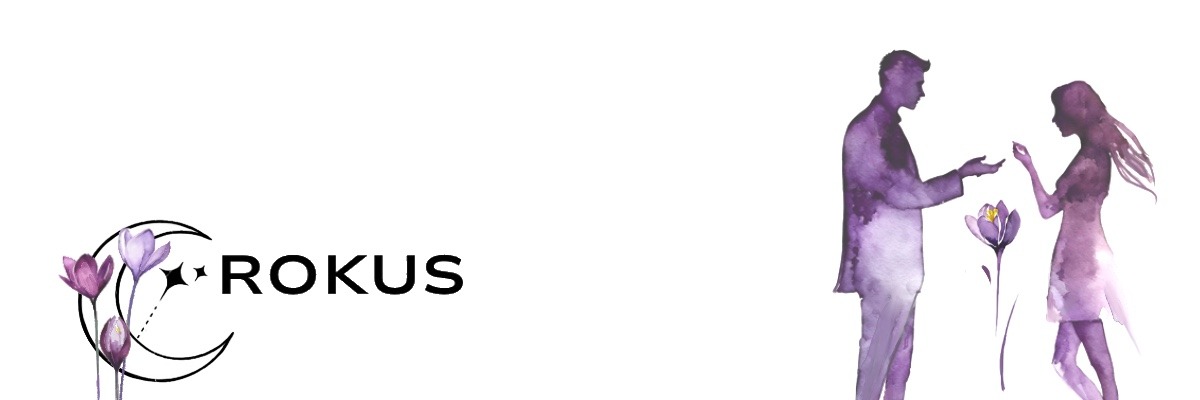Emotions can be powerful, overwhelming, and sometimes completely unpredictable. One moment, you feel deeply connected to your partner, and the next, frustration, anger, or sadness take over. When emotions spiral out of control, they can create unnecessary tension and misunderstandings. But the key to a strong relationship isn’t avoiding emotions—it’s learning how to manage them without letting them damage your connection. Knowing how to stay calm during an argument can be a game changer, helping you navigate through emotional turbulence and preserve harmony in your relationship.
A Real-Life Example: When Emotions Take Over
Emma and Jake had been together for three years. Their relationship was strong, but like any couple, they had their moments of tension. One evening, after a long and stressful day at work, Emma came home exhausted. She found Jake watching TV, completely unaware of the overwhelming pressure she had been dealing with.
Frustrated, she snapped, “You never help me with anything!” Her voice was sharper than she intended, and the words hit Jake hard. He immediately became defensive, saying, “That’s not true! I do plenty, but you never notice.” Within minutes, what started as a small irritation turned into a heated argument.
Later, when Emma calmed down, she realized her anger wasn’t really about Jake. It was about feeling unsupported and unheard, emotions rooted in past experiences, not just this single moment. Instead of letting the fight escalate further, she apologized and explained how she had been feeling. Jake, in turn, shared that her words made him feel unappreciated.
By taking a step back and recognizing the deeper emotions behind their reactions, they learned how to stay calm and rebuild the connection instead of letting the argument drive them apart. This experience taught them a valuable lesson: emotions need to be acknowledged, but they don’t have to dictate how a relationship unfolds.
Recognize the Trigger Before Reacting
Strong emotional reactions usually have deeper roots. Maybe your partner’s words reminded you of a past hurt, or stress from work made you more sensitive than usual. Instead of immediately reacting, take a moment to ask yourself, “What am I really feeling? Is this about the present moment, or is something else influencing my emotions?” Recognizing your triggers can help you respond with clarity instead of impulse.
- Pause and Take a Breath
When emotions rise, taking a pause can make all the difference. This doesn’t mean shutting down or ignoring your partner, but simply giving yourself a moment to regain control. A few deep breaths, stepping outside for fresh air, or even saying, “I need a moment to process this,” can prevent a heated exchange from turning into a full-blown argument.
- Communicate with Emotional Awareness
Saying “You always make me feel this way” can trigger defensiveness in your partner, leading to further conflict. Instead, express your emotions with ownership: “I feel hurt when this happens” or “I’m overwhelmed right now, and I need some space to think.” This shift in communication reduces blame and opens the door for understanding rather than conflict.
- Don’t Let Temporary Feelings Lead to Permanent Damage
In the heat of the moment, it’s easy to say things you don’t mean or make decisions you’ll regret. But relationships are built on trust, and repeated emotional outbursts can slowly erode that foundation. When emotions are running high, remind yourself that this moment will pass. Before making any big decisions or saying something hurtful, ask yourself, “How will I feel about this in a few hours?” These can help you to stay calm.
Use Tarot as a Tool for Emotional Clarity
When emotions feel chaotic, gaining perspective can be difficult. Tarot can be a valuable tool for reflection, helping you understand hidden emotions, fears, and patterns in your relationship. If you find yourself overwhelmed, consider asking How does he feel about me? or What is blocking us? to gain insights into the emotional dynamics at play. These readings can offer guidance and help you navigate emotional challenges with greater awareness.
Emotions are an inevitable part of love, but they don’t have to control your relationship. By recognizing triggers, pausing before reacting, and communicating with awareness, you can learn how to stay calm and create harmony even in emotionally intense moments. And when things feel unclear, tools like Tarot can help bring understanding and direction.
Key Takeaways from How to Stay Calm When Emotions Are High
- Acknowledge the Emotions: Recognizing when emotions are running high is the first step to gaining control. It’s essential to stop, pause, and identify what you’re truly feeling before reacting.
- Communicate, Don’t React: Rather than letting emotions dictate your response, take a moment to breathe and then communicate calmly. Sharing how you feel without blaming the other person can prevent escalation.
- Create Safe Space for Expression: Allow space for both partners to express their emotions without judgment. Emotional vulnerability, when done in a safe environment, can bring people closer.
- Focus on Understanding: Rather than focusing on winning an argument, shift your energy toward understanding each other’s feelings and perspectives. This leads to empathy and helps maintain harmony.
- Practice Self-Regulation: While emotions can surge, learning techniques like deep breathing, mindfulness, or simply stepping away from a heated situation helps you regain control over your emotional responses.
By understanding and managing your emotional triggers, you can strengthen your relationship and navigate even the most challenging emotional waves together.
How Do I Calm Down Asap?
Knowing how to calm down quickly can be incredibly useful—especially when it’s necessary in the moment. It not only helps us manage stressful situations but also has a significant impact on our relationships. The ability to regain composure swiftly fosters better communication, understanding, and mutual support in a partnership. Being able to control emotions and stay calm during tense moments builds trust and strengthens the overall harmony of the relationship.
Here are a few effective ways to calm down quickly:
- Deep Breathing: Take slow, deep breaths—inhale for 4 counts, hold for 4, and exhale for 4. This helps activate your body’s relaxation response.
- Grounding Techniques: Focus on your surroundings to anchor yourself in the present moment. For example, look around and identify five things you can see, four you can touch, three you can hear, two you can smell, and one you can taste.
- Progressive Muscle Relaxation: Tense and release each muscle group in your body, starting from your toes and moving up to your head.
- Visualization: Imagine yourself in a calming place, like a peaceful beach or forest, and mentally walk through the scenery to distract your mind.
- Mindful Observation: Focus your attention on one sensory experience, like feeling a soft object or listening to calming sounds. This helps refocus your mind and calm anxiety.
- Self-Talk: Use calming, rational phrases to remind yourself that the feeling will pass, such as “I’m safe” or “I can handle this.”
- Physical Movement: Stretch, take a short walk, or do a light exercise to release tension and boost endorphins.
These strategies can help quickly reduce stress and bring your mind and body back to a more relaxed state.
Staying calm in harmony when emotions are out of control requires self-awareness, patience, and healthy coping strategies. By recognizing your emotional triggers and taking a step back to process your feelings, you can learn how to stay calm and prevent impulsive reactions. Practicing deep breathing, mindfulness, or even taking a brief break can help you regain composure. In relationships, remaining calm allows for better communication, prevents escalation, and creates space for mutual understanding, fostering a stronger emotional connection and maintaining harmony even during challenging moments.



